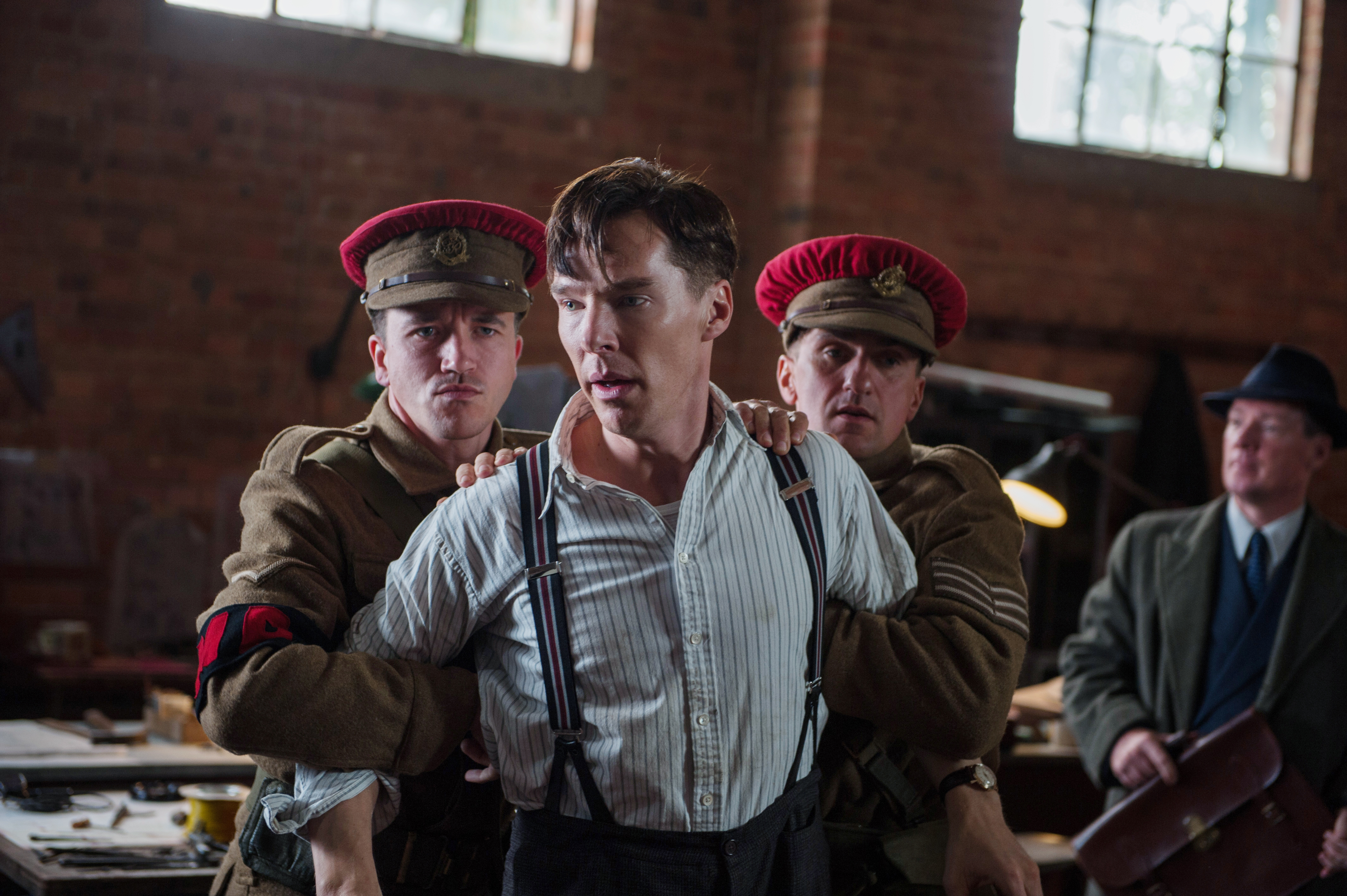Seldom do real stories offer up the tidy narrative that fits neatly within the demands of a major motion picture.
Yet even compared to the likes of 2000’s controversial U-571, which substituted British sailors for American when it came to seizing a working Enigma machine, director Morten Tyldum’s much-hyped The Imitation Game – available from 9 March 2015 on DVD and Blu-ray – is glib and unsatisfying, servicing the demands of the audience at the expense of the reality, when it could have so easily serviced both.
The end result feels more like a feature-length episode of Downton Abbey than a movie, as the ambitious edifice of Bletchley Park codebreaking – involving 10,000 people at its peak and building upon the efforts of earlier Polish, Czechoslovak and French intelligence operations – is reduced to a misfit skeleton crew of half-a-dozen people who alternately aid and oppose Alan Turing. Turing, of course, alone among them holds the key to decrypting German wireless transmissions, thanks to the massive computer he’s single-handedly building in a shed.

Particularly disingenuous is the denigration of Commander Alastair Denniston, head of the Government Code & Cypher School (GC&CS, the forerunner to GCHQ), into a narrow-minded establishment stooge, a pantomime villain played by serial scenery chewer Charles Dance (Game Of Thrones, Gosford Park) who is perpetually conspiring to shut down Turing’s project because apparently the rise of Nazi Germany isn’t foe enough.
Turing himself is ripe for character study. An eccentric individual whose theories were decades ahead of their time and who had the misfortune to be a gay man in an era of great intolerance, ignorance and injustice, yet The Imitation Game chooses to ignore the subtleties of Turing’s personality in favour of broad brush strokes from a different palette.
In actuality he had a good working relationship with his colleagues and a mischievous sense of humour, but in the hands of Benedict Cumberbatch – who has form when it comes to emotionally aloof geniuses thanks to his role as Julian Assange in an altogether different class of codebreaking film The Fifth Estate and a post-modern Sherlock Holmes in the BBC’s Sherlock – Turing unambiguously enters the Autistic spectrum.

Perhaps this is to more easily rationalise his behaviour and sense of isolation, but it suggests The Imitation Game thinks so little of its audience that they’re unable to find room in their world view for anything in the landscape of personality types between the false poles of ‘normal’ and ‘Asperger syndrome’.
If Turing’s personality has been hardened for narrative effect, his sexuality has been softened. Not so much homosexual as asexual, what was a brief relationship with fellow cryptographer Joan Clarke, in The Imitation Game has transformed into a full-bore romantic subplot with Keira Knightley (Pride & Prejudice) in the Clarke role.
This strange reluctance to fully confront Turing as a gay man (the closest we get is a schoolboy crush) creates a strange tonal shift when it does enter the fore, such as the heartbreaking conclusion where he’s offered prison or chemical castration as punishment for “gross indecency.”

Following Alan Turing’s 2013 posthumous pardon for his supposed crimes at the hands of homophobic lawmakers in Britain, as well as a renewed interest in codebreaking and signals intelligence – for good and ill – thanks to both the recent 70th anniversary of D-Day and the machinations of his spiritual successors in GCHQ, there’s never been a better time to tell the story of Bletchley Park and one of Britain’s most high-profile LGBT war heroes.
The results then, are a massive disappointment.
The Imitation Game is available on DVD and Blu-ray from 9 March 2015. For more stories from World War II, pick up the new issue of History of War or subscribe now and save 30% off the cover price.
